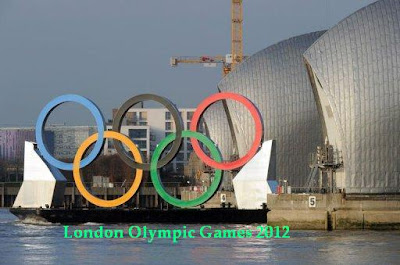Effects of TV on Olympic Games & Olympic Tickets
Summer Olympics was broadcast for
the first time in 1936, held in Berlin in the first game on TV, even though the
local audience only. In the Olympics for the first time in 1956 Winter Olympics
rights in the U.S. via television, right after the broadcast the Winter
Olympics for the first time sales of network radio career, paid CBS $ 394,000,
and the European Broadcasting Union (EBU) allocation of $ 660,000 USD.
After
the Olympics, I discovered that many decades of the Cold War, one of the
ideological fronts. Chalk it seemed like a great power in the political gains
of the International Olympic Committee would like to take this interest in
broadcast media. The sale of television rights, and IOC Olympic Games to
increase exposure and generate more interest, which in turn creates more
publicity on television to appeal. This session and the rising cost of the
International Olympic Committee to have these rights. For example, CBS paid $
3750000, and rights for the Olympics 1998 in Nagano, NBC spent $ 350 million
for all rights to broadcast the Olympic Games 2000 to 2012. The audience for
Olympic Games was growing audience of 1960 so that the language of the End of
the World.
The use Satellite TV for around the world in 1964 and the
introduction of color in the televisions 1968 Mexico City Games in 1968 a
global audience of 600 million Euros, when playing in Los Angeles in 1984, is
increasing to 900 million viewers, numbers INCREASED to 3.5 Six of the 1992
Olympic in Barcelona. But in the Olympic 2000 in Sydney, NBC pulled the lowest RATING
Olympic Sport for the Cool Season, begins IN the Summer of 1968. Created
husband is due to the matter of prayer: Date Value, INCREASED over the ropes
language of river discharge, the second is to show Internet pages, and I see
the decision in Real TIME. Television companies are still relying on tape delay
in the content, which becomes obsolete in the information age. Lower ratings
mean that the television studios had to give up free time advertising. With a
dry, high costs charged to broadcast the games, additional pressure on the
Internet and increased competition from cable television lobby calls for
concessions from the IOC to raise revolting.
MOK responded by making several
changes to the Olympic program. At the Summer Olympic Games gymnastics competition
was expanded from seven to nine nights, and the Champions Gala was added to
attract more interes.MOK also expanded swimming and diving programs, such as
popular sports with a broad base of viewers. Finally, the American television
lobby was able to dictate when certain events were held, so that they could
live in prime time in the United States. As a result of these efforts has been
mixed: The ratings in the 2006 Winter Games held in Turin, Italy, were
significantly lower than for the Games in 2002, while there was a sharp
increase in viewership for the 2008 Summer Olympics, staged in Beijing.






Comments
Post a Comment